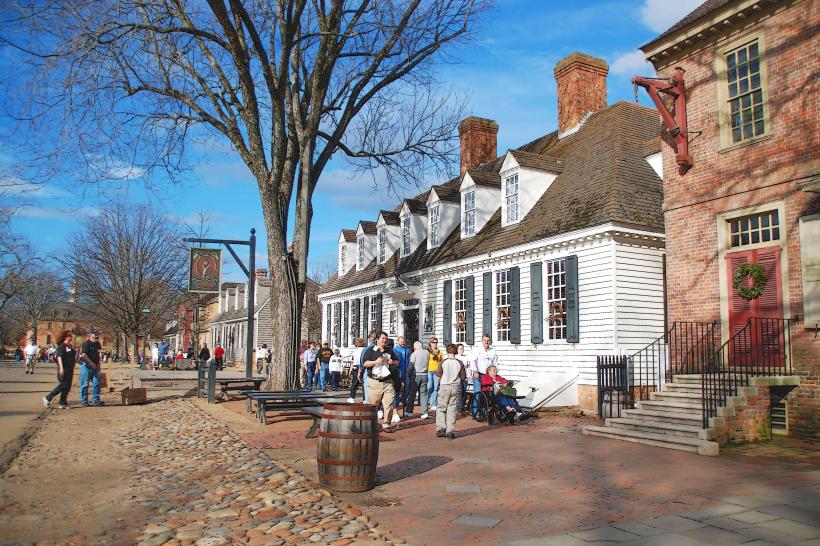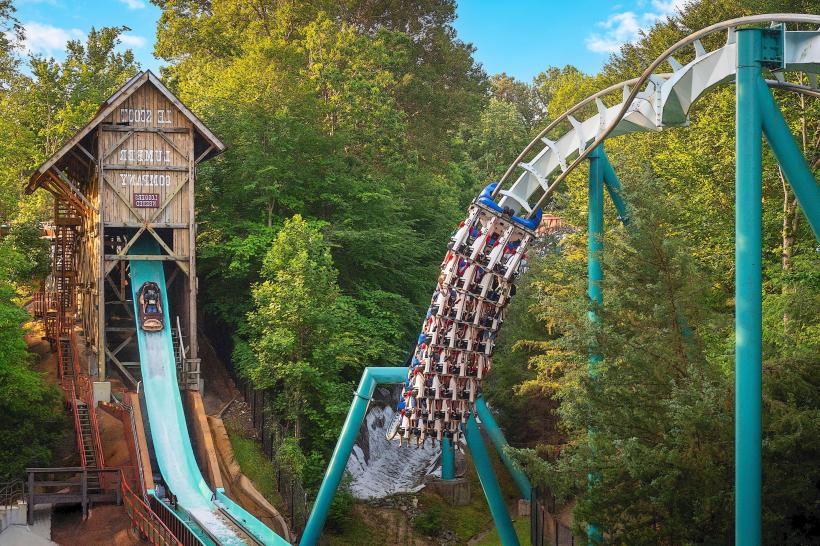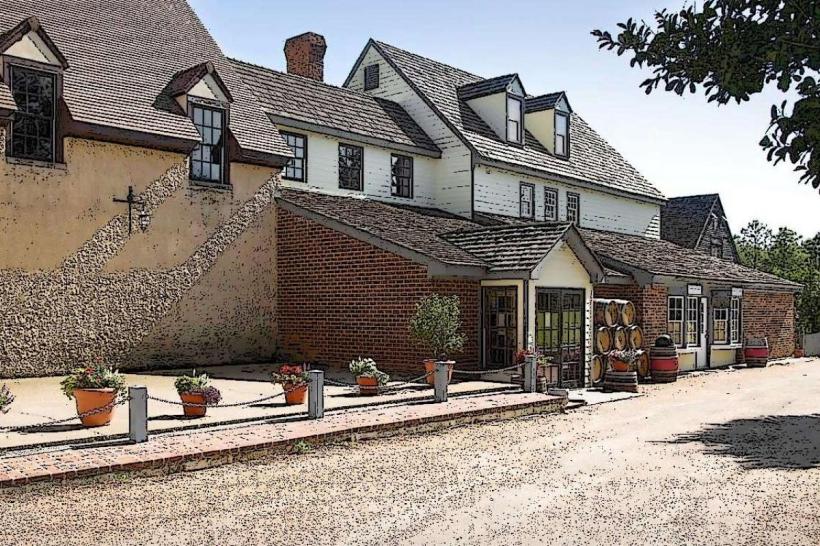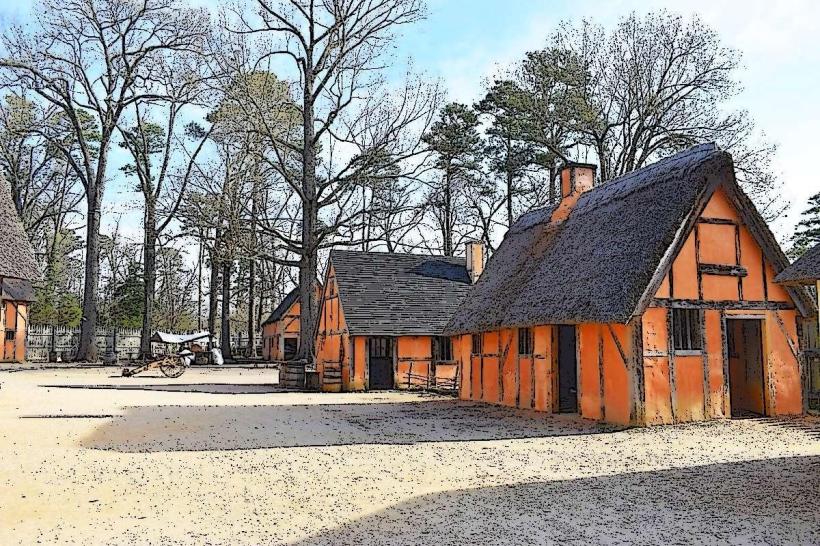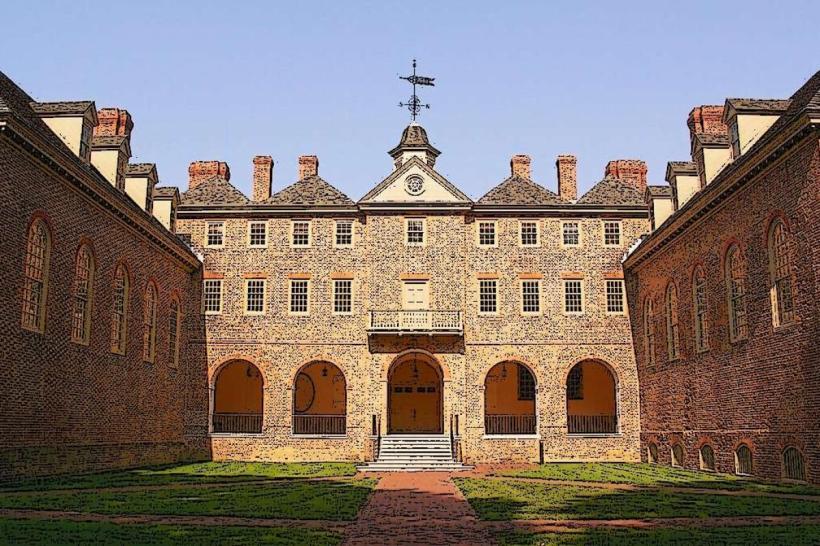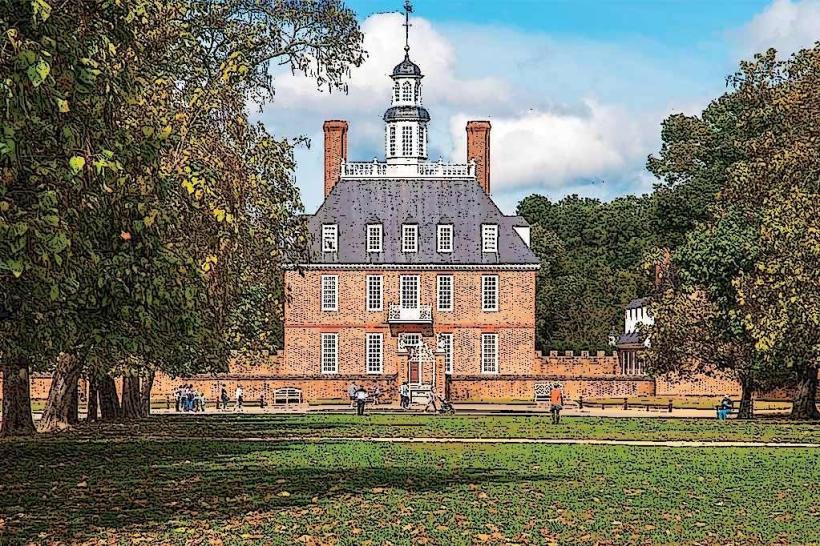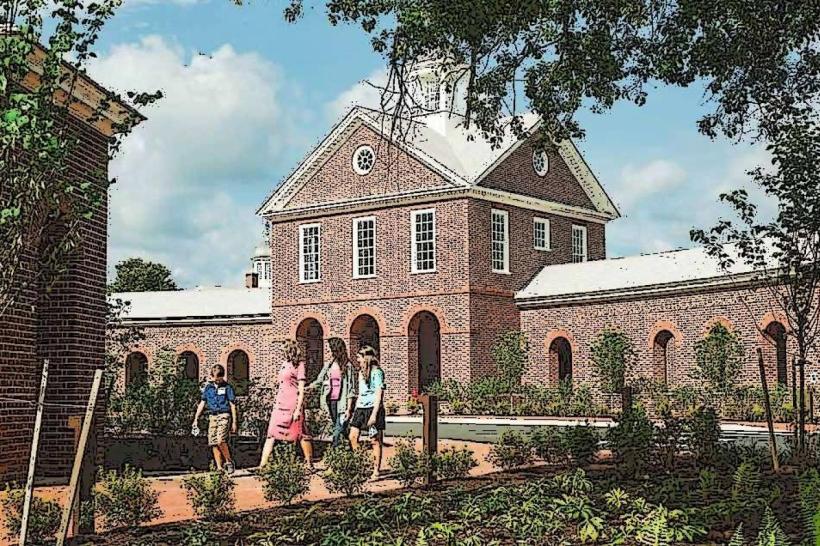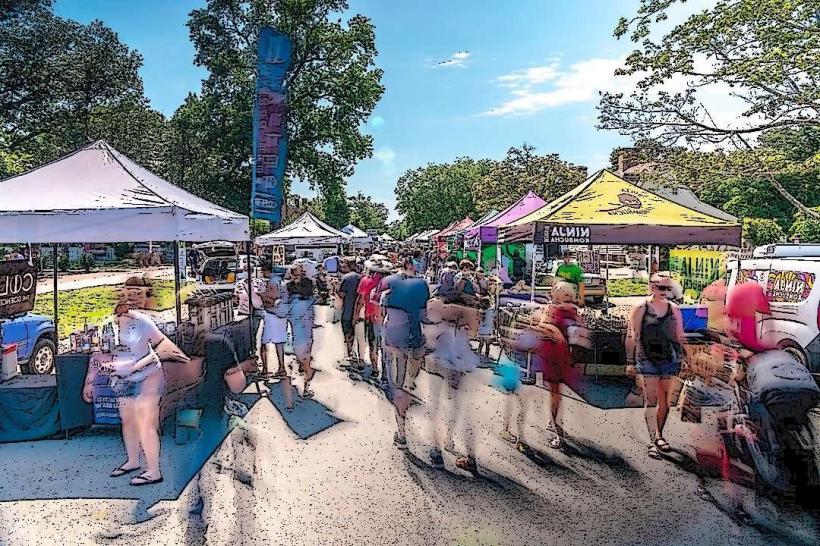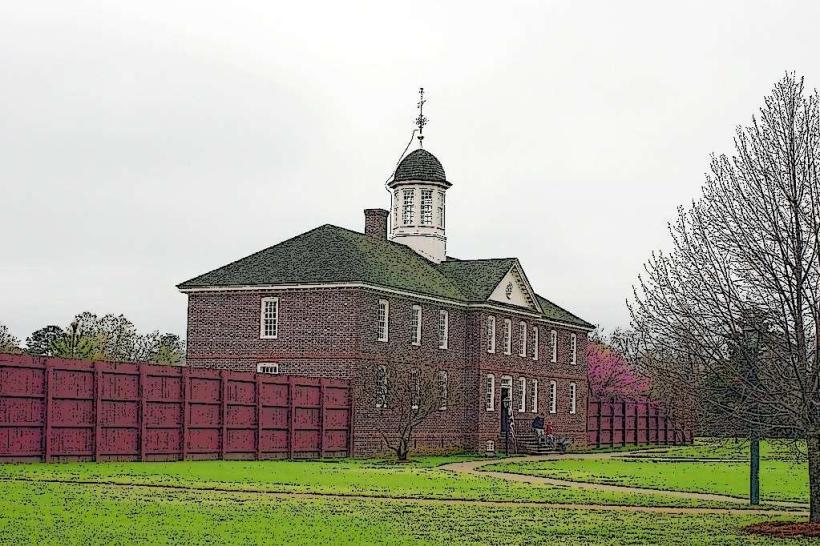Information
Landmark: Jamestown SettlementCity: Williamsburg
Country: USA Virginia
Continent: North America
Jamestown Settlement, Williamsburg, USA Virginia, North America
Jamestown Settlement is a world-class living-history museum and interpretive complex located near the site of the original 1607 Jamestown Colony, in the Historic Triangle of Virginia. Operated by the Jamestown-Yorktown Foundation, this institution blends immersive exhibits, reconstructed environments, and historical interpretation to tell the story of America’s first permanent English settlement, its interaction with Indigenous peoples, and the early shaping of a diverse colonial society.
🏛️ Museum and Indoor Exhibits
At the heart of Jamestown Settlement lies a state-of-the-art exhibition building that offers over 30,000 square feet of gallery space. These exhibitions are built around a three-part narrative: the Powhatan peoples, the English settlers, and the Africans brought to Virginia. The museum skillfully uses archaeological artifacts, digital media, and interpretive storytelling to educate and immerse visitors.
Highlights of the Indoor Experience:
“1607: A Nation Takes Root” – A 25-minute orientation film shown continuously, tracing the journey of English colonists from London, their challenges in establishing Jamestown, their interactions (both peaceful and violent) with the Powhatan Confederacy, and the eventual arrival of enslaved Africans in 1619. This foundational story sets the tone for the museum’s exhibits.
Artifacts & Multimedia Displays:
A jack of plate armor worn by English soldiers.
17th-century maps, nautical instruments, weapons, and ceramics.
Powhatan tools and ceremonial items, illustrating native life prior to and after English contact.
Personal stories of African men and women who arrived in Virginia, highlighting their diverse cultures and the early history of American slavery.
An exhibit focused on Pocahontas, portraying evolving interpretations of her story in art, media, and public memory.
Special Galleries:
Bacon’s Rebellion Theater Experience – A short film using lighting, sound effects, and 4-D visuals to tell the story of the 1676 uprising led by Nathaniel Bacon, representing the social unrest and tensions between settlers, government, and Native Americans.
Women in Early Virginia – An in-depth exploration of colonial gender roles, featuring rare domestic artifacts and narratives of colonial women’s labor, punishment (like the “ducking stool”), and societal influence.
🌿 Outdoor Living-History Areas
The outdoor areas are where Jamestown Settlement truly comes alive. These carefully reconstructed settings are interpreted by costumed historians, who demonstrate daily life through hands-on activities and storytelling.
1. James Fort (1610–1614 Reconstruction)
A full-scale replica of the triangular-shaped fort that would have been occupied by settlers just a few years after the 1607 landing. Key features include:
Timber palisade walls, corner bastions, and a central flagpole.
Reconstructed buildings like:
Governor’s house with period furnishings.
Storehouses holding replica trade goods and tools.
Armory with period-accurate firearms, helmets, pikes, and matchlocks.
Anglican chapel with pews and altar cloths based on 17th-century English church designs.
Costumed interpreters demonstrate:
Blacksmithing, woodworking, cooking, sewing, and musket-firing drills.
Colonial defense tactics and daily survival skills like candle-making and gardening.
2. Powhatan Indian Village
This is a recreated version of a Paspahegh town, based on extensive archaeological work done at nearby Werowocomoco and other Virginia sites. It presents a pre-colonial village inhabited by Native Americans of the Powhatan Confederacy:
Houses (yehakins) constructed with saplings and reed mats.
Cornfields, dugout canoes, and ceremonial areas.
Interpreters in deerskin garments demonstrate:
Traditional cooking over open hearths.
Tool-making using bone, stone, and shells.
Basket weaving, hide tanning, and food preservation.
Discussions of Powhatan governance, religion, and family structure.
The Powhatan experience highlights the sophistication and adaptability of Indigenous societies prior to colonization.
3. Recreated Ships at the Pier
Moored on the James River are full-size, seaworthy re-creations of the three ships that brought settlers to Virginia:
Susan Constant (the largest ship, captained by Christopher Newport)
Godspeed
Discovery
Visitors can board each ship and explore:
The cargo holds, bunks, and navigational instruments.
Details on how 104 settlers survived the transatlantic voyage.
Interactive demonstrations of sailing techniques, rope work, and navigation by stars and compass.
Interpreter-led discussions on maritime life, shipboard duties, and relations with ship captains and merchants.
🎟️ Visitor Experience and Programming
Jamestown Settlement is designed to be accessible and engaging for all age groups, from school children to scholars. Beyond its core exhibits, it offers:
Guided and self-guided tours with audio support or printed materials.
Interactive classrooms and children’s discovery areas.
Living history programming tied to seasonal events, such as harvest festivals, reenactments, and Colonial Christmas.
Special exhibits hosted in temporary galleries focusing on topics like colonial justice, transatlantic trade, or early art.
The Jamestown Café for dining and museum gift shop offering reproduction artifacts, books, and locally made crafts.
🕰️ Practical Details
Location: Just off Colonial Parkway, minutes from Williamsburg, Virginia.
Hours: Open daily, 9 AM to 5 PM (extended summer hours).
Accessibility: The entire museum is wheelchair- and stroller-accessible.
Admission: Separate ticketing from Historic Jamestowne (the actual archaeological site). Combo passes available.
Events: Year-round programming includes Founding Day (May), Thanksgiving tributes, and historical lecture series.
🧭 Distinction from “Historic Jamestowne”
It’s important to distinguish Jamestown Settlement (a modern museum and reconstruction) from Historic Jamestowne, the actual archaeological site of the original 1607 colony managed by the National Park Service and Preservation Virginia.
While Historic Jamestowne focuses on archaeological discovery and preservation, Jamestown Settlement offers an immersive, educational re-creation of life as it was lived in the early 17th century-ideal for first-time visitors, families, and those seeking a broader historical context.
⭐ Summary
Jamestown Settlement offers a deeply immersive and engaging look into the foundations of American history. With its blend of cutting-edge exhibitions, authentic reconstructions, costumed interpreters, and vivid storytelling, it provides a compelling narrative of early American identity, the birth of a multicultural society, and the enduring legacies of Native peoples, European settlers, and Africans who shaped Virginia's earliest days. It is a must-visit destination for those seeking to understand not just what happened in 1607-but how it still resonates today.

